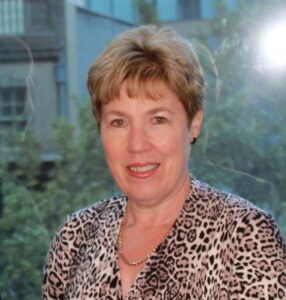Anne O’Donnell is a businesswoman and an expert at making the best of what she’s got. But it’s been “throwing her hat in the ring” that’s been key to her career success in senior management and as a woman on boards.
Her 30 year career in the finance and superannuation sector has evolved from humble beginnings as a typist at the ANZ Bank in small town of Trundle, NSW to an impressive portfolio of responsibilities.
Anne’s current positions include non-executive directorships of Australian Institute of Company Directors, investment firm Equity Trustees and Chair of the Beyond Bank Australia Board.
She is a passionate advocate for greater diversity on Australian boards and in this interview on The Constant Investor Success Stories Podcast she shares her insights on governance and advice for young execs looking to grow their board experience.
Tips to landing a board role
Serendipity and luck often play a part in landing a board role but it’s not all up to chance.
Anne suggests tackling the task of securing your first board role with a three pronged approach: Regularly keep an eye on Australian Institute Of Company Directors and Women On Boards an independent and action-oriented social enterprise supporting women to leverage their professional skills and experience into non-executive- director and other board level roles.
Let people know you are looking for a board position – network and get your CV out there!
Try and tap into the director search via recruitment agencies which specialize in this area.
Be selective

Anne is Chair of the Investment, Audit and Risk Committee (IARC) of The Winston Churchill Fellowship. The Fellowship has a corpus of approximately $100 million dollars which funds around 112 fellowships per year.
It’s a role she thoroughly enjoys but her advice for building a portfolio of directorships is to keep a balance between paid and philanthropic commitments. Be mindful, she says, not to load yourself up with too many unpaid roles.
While it’s great to build experience, in some cases not-for-profit environments can be challenging and not necessarily “a great place to be a learner, to have your L plates on” warns Anne.
Personally, she commits to one unpaid role at a time to strike a balance in giving back in the not for profit sector while not overloading herself.
Of equal importance, is remaining selective about paid roles to take on.
There’s a temptation, believes Anne, when you’ve been offered a role to accept, sometimes simply out of fear you may not be offered another! In her experience, if you are offered a role, it won’t be the last time, so don’t rush into the commitment without taking time to consider if it is truly the right fit for you.
Managing information overload
Anne has a few tips for managing the overwhelm of papers that come with board positions.
When you first start, you just need to get stuck in and do the reading, she says. Reading through papers in one sitting, rather than an hour here and there is Anne’s preferred method.
She also writes personal notes and questions as she works her way through, coming back to them to refresh her memory just prior to meetings.
Always think of the next step
If you are in a good job, great, but don’t become complacent. The advice given to Anne years ago is something she still holds too – always be thinking of your next opportunity, what your next role will look like and what you need to do to land it.













